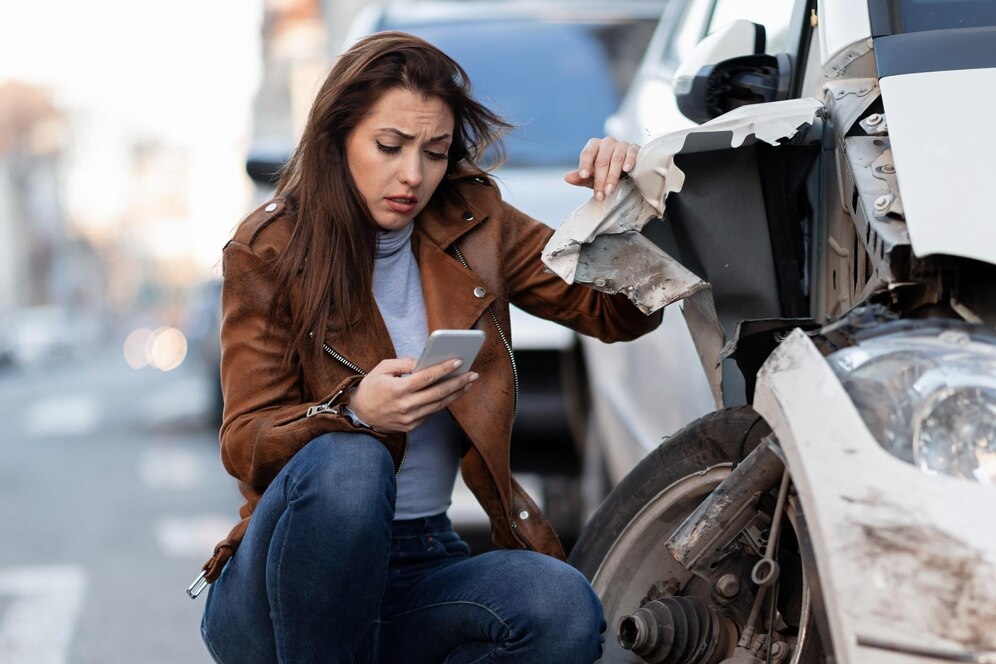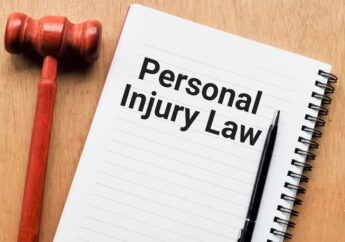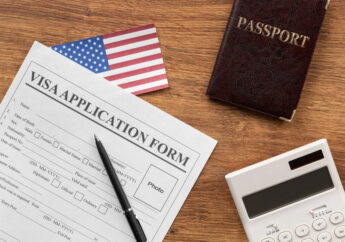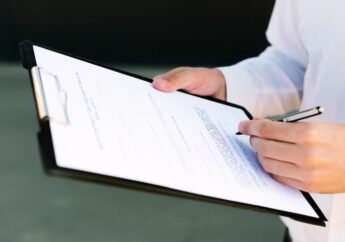5 Things To Do If You’re At Fault In A Car Accident
by Ankita Tripathy Legal Published on: 27 March 2024 Last Updated on: 16 May 2025

There were 39,058 fatal car accidents in the US in 2021, which is 1.37 deaths per 100 million miles traveled.
Being in a car accident is awful, especially if you believe you were at fault – 31% of all motor vehicle fatalities involved intoxicated drivers. However, it’s important to remain calm and take the right steps to handle the situation properly.
According to Matt Baggett, a car accident lawyer in Jacksonville, Florida, these are five key things you should be doing if you’re at fault in a car crash.
Call the Police

The first and most crucial step is to call the police immediately after the accident occurs. Even if the damage seems minor, you’ll want an official police report documenting the incident. The police will come to the scene, assess the situation, and file a report that will serve as critical evidence if any legal or insurance claims arise from the accident.
When the police arrive, be honest and upfront about what happened. Provide a clear and truthful account of the events leading up to the accident. Do not try to mislead or minimize your role, as this could get you into further trouble. Cooperate fully with the officers and follow any instructions they give you.
For example, if they suspect you have been drinking, they will conduct a field sobriety test, the results of which will be used against you. However, first of all, field sobriety tests only have a 66-77% accuracy rate, and second, it is possible the other parties involved are also liable.
Check on the Other Parties Involved
After calling the police, your next priority should be to check on the well-being of any other drivers, passengers, or pedestrians involved in the accident. Approach them calmly and politely, and ask if they need any medical attention. Even if they seem fine, offer to call emergency services just to be safe.
It’s important to avoid admitting fault or apologizing profusely at this stage, as your words could be used against you later on. Simply express concern for the other parties and let them know the police have been called.
Exchange Insurance Information
Once you’ve ensured everyone’s safety, exchange insurance information with the other driver(s) involved. This typically includes your name, contact details, driver’s license number, insurance company, and policy number. You’ll also want to get the same details from the other party or parties.
Make sure to get a copy of the police report as well, as this will provide an official record of the incident. This information will be crucial when filing an insurance claim and dealing with any potential legal proceedings.
Seek Legal Advice
Depending on the severity of the accident and any injuries or damages involved, you may want to consult with a personal injury lawyer. An experienced attorney can advise you on your rights and obligations and help protect your interests if the other party decides to pursue legal action against you. They will also look at who was to blame in case you are not wholly liable for the accident.
Even if no one was injured, an auto accident attorney can still provide valuable guidance on dealing with insurance claims and avoiding any potential pitfalls. They can also help you understand the local laws and regulations regarding at-fault accidents in your area.
Notify Your Insurance Provider
You’ll need to notify your insurance provider about what happened. Provide them with all the details you collected, including the police report number. Your insurance company will then guide you through the claims process and handle communications with the other party’s insurer.
By taking these five crucial steps, you can help ensure the situation is handled properly and minimize the potential legal and financial consequences you may face.
What A Faulty Driver Should Not Do?

Now that we know what are the ethical practices of a faulty driver, let’s have a look at what they should not perform:
1. Do not shout
It is common to have an agonizing feeling after an accident, even if the fault is yours. But don’t ruin things by yelling and pointing fingers at others. Be calm, listen patiently, and then call for immediate action.
2. Inspect whose fault it is
Sometimes, an accident can be caused by two people’s negligence. Make sure to check whose fault it is actually. If it’s yours, calmly accept it and let the police decide what can be done further. On the other hand, if it’s somebody else’s fault, wait for the decision and don’t be the ultimate decision-maker.
3. Refrain from escaping
You are simply proving you are guilty if you run the accident scene. Sooner or later, the police are going to catch you. Or, at least, you will be charged with a hit-and-run case. Do not increase trouble for yourself by escaping. Just stay there, relax, and let the administration decide.
4. Don’t keep discussing
It’s better to keep things within yourself. Discussing the accident details with irrelevant parties will simply exaggerate a small incident. Cooperate with the police and talk to your insurance company about the settlement. If you want legal advice, simply talk to a car accident lawyer. That’s it!
5. Say no to negotiation
The accident scene is a place for signing statements and inspecting whose fault it was actually. Not a place to negotiate and make deals. So, just let the insurance agencies peacefully complete their job and do not interfere until a decision comes!
The Bottom Line
While driving on the road, it’s common to encounter an accident. And you can be at fault, too. But it’s important to be professional about it and deal with things in a positive way. Causing a car accident might have serious repercussions, but not if you refrain from behaving negatively.
Implement the aforementioned do’s and don’ts if you want the least punishment for your faulty driving. That marks the end of this article. Thank you for reading till the end. Do share your comments below.
Read Also:



































































































